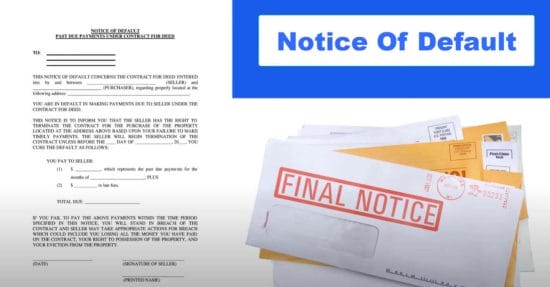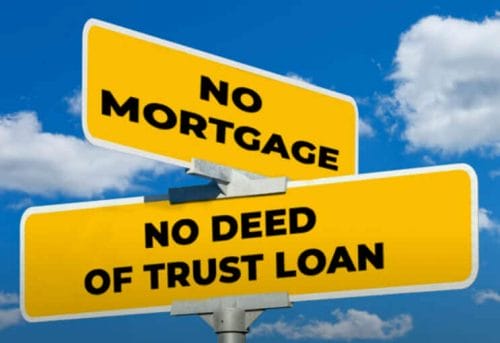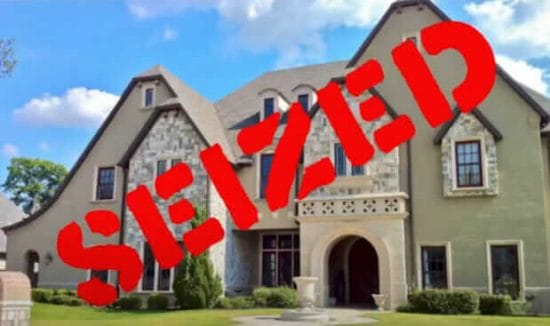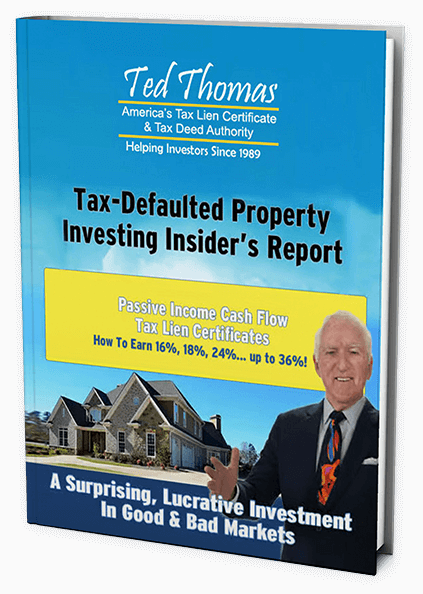Seized property auctions present a unique opportunity for savvy investors and real estate entrepreneurs to acquire valuable assets at significantly reduced prices. Today, we’ll delve into the world of tax delinquent real estate auctions and explore how these tax sales can provide lucrative investment opportunities.
As you navigate through this information, you’ll gain insights on assessing value and profit margins of tax deed properties, understanding the difference between market value and assessed value. Furthermore, we’ll discuss mortgage-free real estate opportunities that tax defaulted property auctions offer while comparing risks associated with traditional foreclosures versus tax-defaulted acquisitions.
Lastly, we’ll share strategies for profiting from seized property auctions along with examples of successful investments made via these events, how to navigate online platforms like Bid4Assets effectively and the importance of thorough research and legal guidance in your seized property investments journey.
Table of Contents:
- Tax Delinquent Real Estate Auctions Explained
- The Process of Seizing Tax-Defaulted Properties by Local Governments
- How Tax Delinquent Real Estate Auctions Work
- Assessing Value and Profit Margins in Tax Deed Properties
- Mortgage-Free Real Estate Opportunities
- Profiting from Seized Property Auctions
- Navigating Online Platforms for Seized Property Investments
- Frequently Asked Questions Seized Property Auctions
- Conclusion
Tax Delinquent Real Estate Auctions Explained
When a property owner neglects to pay property taxes, the local government may take possession of the real estate in order to recover lost revenue. These properties seized for unpaid taxes are then resold at tax delinquent real estate auctions, offering potential buyers a unique opportunity to purchase the assets below market value. Let’s discuss the process of seizing tax-defaulted properties by local governments and how these particular seized property auctions work.
The Process of Seizing Tax-Defaulted Properties by Local Governments
Local governments rely on property taxes as a primary source of funding for essential services such as schools, roads, and public safety. When property owners don’t pay their taxes on time or default altogether, it puts financial strain on these services. To mitigate this issue, counties and municipalities have the legal authority to seize tax-delinquent properties after following due process.
- Notice: The treasury department sends multiple notices informing the owner about unpaid taxes and possible consequences if they continue not paying them.
- Lien: If no payment is made within a specified period, a lien is placed against the property which gives local government priority over other creditors when collecting debt.
- Auction: If still no payment is received even after placing liens; eventually, the county seizes ownership rights from delinquent taxpayers through court proceedings and sells off those rights via tax-defaulted auctions, also known as “seized property auctions.”

How Tax Delinquent Real Estate Auctions Work
At a tax delinquent real estate auction, seized properties are offered to the highest bidder. Auctions may be conducted physically, virtually, or in a combination of both formats with the aim to reclaim unpaid taxes and related costs. The primary goal is to recover as much of the unpaid taxes and associated fees as possible.
Before participating in an auction, you should research available properties by reviewing public records and visiting the property or having someone you trust do it for you. This will help you determine whether it’s worth bidding on a particular asset or not since the real estate is sold “as-is.”
In many cases, tax-defaulted real estate sells for significantly less than its market value at seized property auctions. This creates an opportunity for you to capitalize on acquiring undervalued assets that you can later sell at higher prices.
Tax delinquent real estate auctions provide a great opportunity for you to purchase properties for pennies on the dollar and turn them into lucrative investments. By assessing value and profit margins of tax deed properties, you can maximize you returns on investment.
Important Takeaway:
Local governments can seize tax-defaulted properties and resell them at tax delinquent real estate auctions to recover lost revenue. These auctions offer you the opportunity to purchase assets below market value, but it’s important to research available properties before bidding as they are usually sold “as-is.” You can capitalize on acquiring undervalued assets that you can later sell at higher prices.
Assessing Value and Profit Margins in Tax Deed Properties
Understanding the difference between tax assessed value and market value is crucial for investors looking into purchasing tax deed properties. Large profit margins can be achieved as these properties seized by local governments often sell significantly below their true worth. Exploring the meaning of tax assessed value, its ties to property taxes, and how it compares with market value will be discussed here.
Defining Tax Assessed Value and Its Relation to Property Taxes
Tax assessed value refers to the dollar amount assigned by a local government agency (usually a county assessor) for the purpose of calculating property taxes. This figure takes into account factors such as location, size, age, and condition of the property, among others. It’s important to note that while an assessment aims at estimating a fair representation of a property’s worth; it may not always reflect its current market price accurately.
- Property Taxes: These are annual levies imposed on real estate owners based on their property’s assessed valuation. The revenue generated from these taxes helps fund essential public services within counties or municipalities.
- Tax Rate: A percentage applied against your home’s taxable assessment which determines how much you’ll pay in annual property taxes.
- Millage Rate: A term used interchangeably with “tax rate,” millage rates represent one-thousandth of your total taxable assessment per dollar (i.e., $1 per every $1k).
Market Value vs Assessed Value Comparison
The market value represents the estimated price a property would sell for in the current real estate market. It’s determined by analyzing recent sales of comparable properties (comps), taking into account factors such as location, size, condition and other unique features that might affect its desirability to potential buyers.
On the other hand, assessed value is used solely for taxation purposes and may not always reflect a property’s true worth accurately. This discrepancy between market value and tax assessed value can lead to significant profit margins when purchasing tax deed properties at seized property auctions.
Let’s say you snag a property with an assessed value of $150k at auction for just half that, i.e., $75k – giving you a potential margin of profit if the real market worth is higher. If the actual market value of this asset turns out to be around $200k or higher after conducting proper due diligence; then you’ve acquired it at 62.5% discount off its true worth – providing ample room for potential profits upon resale or rental income generation.
Assessing value and profit margins on tax deed properties is a critical step for any real estate investor to ensure maximum returns on investments. With this knowledge, you can now move onto exploring the benefits of acquiring mortgage-free assets through seized property auctions.
Important Takeaway:
Investors looking into purchasing tax deed properties must understand the difference between tax assessed value and market value. Tax assessed value is used for taxation purposes, while market value represents the estimated price a property would sell for in the current real estate market; this discrepancy can lead to significant profit margins when purchasing at seized property auctions.
Mortgage-Free Real Estate Opportunities
One significant advantage of buying tax defaulted real estate is that it’s sold without a mortgage. This allows you to acquire assets with lower financial burdens compared to traditional foreclosure sales, increasing potential profits. Now let’s discuss the benefits of acquiring mortgage-free assets through seized property auctions and compare the risks associated with traditional foreclosures versus tax defaulted acquisitions.

Benefits of Acquiring Mortgage-Free Assets Through Seized Property Auctions
Purchasing properties at tax-defaulted auctions offers several advantages over conventional methods such as bank-owned or short sale transactions. Some key benefits include:
- No outstanding mortgages: Real estate acquired through tax-defaulted seized property auctions comes free from any existing mortgages, allowing you to take ownership without inheriting debt.
- Limited competition: As many potential buyers may not be aware of these opportunities or lack experience in navigating them, there’s often less competition for properties offered at these auctions.
- Faster acquisition process: The bidding process at a tax auction can be quicker than other types of real estate transactions since it typically involves cash payments and does not require lender approval or financing contingencies.
- Potential for high returns on investment (ROI): With properties selling significantly below market value due to unpaid property taxes, you can realize substantial ROI after reselling the asset or renting it out for passive income generation.
Comparing Risks Associated with Traditional Foreclosures Versus Tax Defaulted Acquisitions
In addition to its benefits, investing in tax-defaulted properties also comes with its own set of risks. It’s essential to compare these risks against those associated with traditional foreclosures before making an investment decision:
- Title issues: While acquiring a property through a seized property auction typically eliminates mortgage-related liens, there may still be other outstanding liens or encumbrances on the title that could affect your ownership rights. Conducting thorough due diligence can help mitigate this risk.
- Property condition: Properties sold at tax auctions are often somewhat used and abused. Factor in potential repair costs when calculating your ROI.
- Limited information available: Unlike traditional foreclosure sales where extensive information about the property is provided by banks or real estate agents, details regarding tax defaulted properties may be limited. This makes it crucial for you to conduct independent research and seek professional guidance when necessary.
In conclusion, purchasing real estate at seized property auctions offers unique opportunities for investors seeking mortgage-free assets below market value. Yet, to make sound decisions and optimize profits, it’s essential to grasp the potential advantages as well as dangers associated with buying real estate at seized property auctions.
Mortgage-free real estate opportunities provide an avenue to acquire assets with a low risk profile and high potential returns. By leveraging the strategies outlined here, you can capitalize on the lucrative profits available through seized property auctions.
Important Takeaway:
Buying tax defaulted real estate through seized property auctions offers the advantage of acquiring mortgage-free assets with limited competition and potential for high ROI. However, be aware of title issues, poor property condition, and limited information available before making an investment decision.
Profiting from Seized Property Auctions
Individuals and entities alike can reap huge rewards by taking part in seized property auctions, such as buying real estate at a significantly discounted price, then reselling for greater profits. See Ted’s student’s success stories.

Strategies for Maximizing Returns on Investment through Acquired Assets
- Analyze the market: Research local market trends to determine which types of properties are in high demand. This will help you identify potential buyers and make informed decisions about which properties to bid on during seized property auctions.
- Diversify your investments: Investing in a variety of property types can help mitigate risks associated with economic downturns or changes in neighborhood demographics that might affect property values.
- Leverage financing options: Although tax-defaulted properties are sold without mortgages, consider using other financing methods if necessary.
Examples of Successful Investments Made via Seized Property Auctions
The following examples showcase how savvy investors have turned significant profits by acquiring undervalued assets through seized property auctions:
- Case Study #1: An investor purchased a tax-defaulted residential property for $30k at a local auction, put in $20k for renovations and improvements, then sold it 6 months later to make a gross profit of $40k.
- Case Study #2: A real estate entrepreneur acquired several commercial properties through various seized property auctions. By repurposing these assets into mixed-use developments with retail spaces on the ground floor and apartments above, the entrepreneur was able to increase rental income significantly while also boosting overall asset values.
Note that by using Ted’s buy low, sell low strategy, you can skip the time and resources you’d otherwise spend on renovating or repurposing property. Simply sell the property at a discount to a renovator or repurposer. When you purchase real estate at seized property auctions for pennies on the dollar, you have an enormous profit margin that enables you to sell at a discount and still make $25,000, $50,000 or even 100,000 from the transaction.
Taking advantage of opportunities presented by seized property auctions can lead to substantial profits for investors who are willing to put in the time and effort required to identify undervalued assets and maximize their potential returns. With proper research and strategic planning, you too could join the ranks of successful investors profiting from this niche investment strategy.
If you’re looking to make investments in this arena, it is important to understand how online platforms work and the importance of research and legal guidance for successful outcomes.
Important Takeaway:
You can make money from confiscated asset sales by buying real estate that is priced below its worth, revamping or changing its purpose, and then reselling it at a higher cost. Strategies for maximizing returns include analyzing the market, diversifying investments, incorporating value-add strategies and leveraging financing options. Successful investors have turned significant profits through this niche investment strategy with proper research and strategic planning.
Navigating Online Platforms for Seized Property Investments
As the world of real estate investing continues to evolve, so too does the way we access and participate in seized property auctions. With platforms like Bid4Assets facilitating online access to nationwide opportunities within this niche investment market, it has become increasingly accessible for investors to participate in tax-defaulted property auctions. However, proper due diligence and legal consultation are essential before committing to any acquisition.
Exploring online platforms like Bid4Assets
- User-friendly interface: Bid4Assets offers a simple and easy-to-navigate platform that allows potential buyers to search for properties by location or specific criteria such as price range or type of asset.
- Detailed information: Each listing on the site provides comprehensive details about the seized properties available at auction, including photos, descriptions, tax assessed value vs market value comparisons, and more.
- Auction alerts: By creating an account with Bid4Assets or similar sites, you can receive notifications when new auctions matching your preferences are posted.
The importance of thorough research and legal guidance in seized property investments
Purchasing real estate through seized property auctions may offer significant profit margins; however, it’s crucial not to overlook the risks involved. Before participating in these types of sales events,
- Gather as much information as possible – Researching each prospective purchase thoroughly is critical since most assets sold at auction come “as-is” without warranties or guarantees regarding their condition or title status.
- Consult with a real estate attorney – A knowledgeable legal professional can help you navigate the complexities of buying tax-defaulted properties, ensuring that your interests are protected throughout the process.
- Inspect the property – If possible, visit and inspect any potential investments in person to assess their true condition or have someone you trust do it for you.
In summary, online platforms like Bid4Assets have made it easier than ever for investors to participate in seized property auctions. By leveraging these resources and following best practices for due diligence and legal consultation, you can maximize your chances of success within this lucrative niche market.
Important Takeaway:
Bid4Assets is a user-friendly online platform that offers detailed information and auction alerts for seized property investments. Still, it is essential to do comprehensive research, talk with a real estate lawyer, and examine the asset prior to committing to any purchase in this specialized sector.
Frequently Asked Questions Seized Property Auctions
What do governments do with seized assets?
Governments typically auction off seized assets to the public in order to recoup losses and generate revenue. These auctions can include items such as real estate, vehicles, and personal property confiscated due to tax defaults or criminal activities. Proceeds from these sales are often used for law enforcement purposes or other government-funded programs.
What does it mean when a property is seized?
A property is considered “seized” when it has been taken by the government due to unpaid taxes, legal judgments, or criminal activity. The owner loses all rights and control over the asset, which may then be sold at a public auction in order to recover outstanding debts or penalties owed by the previous owner.
Is GSA auctions legit?
GSA Auctions is a legitimate platform managed by the U.S. General Services Administration (GSA) that offers surplus federal assets for sale through online auctions. Items available on this site include real estate properties, vehicles, office equipment, and more – all of which have been previously owned by various federal agencies.
Can you buy property from the US government?
You can indeed purchase properties from the US government through several channels like HUD Home Store, Treasury Real Property Sales, and GSA Auctions. These platforms offer various types of properties including residential homes, commercial buildings, and land parcels that have been seized, foreclosed, or are no longer needed by the government.
Conclusion
Seized property auctions can be a great opportunity for investors, real estate entrepreneurs, and anyone looking to make a profit. Understanding the process of seized property auctions and the benefits they offer is crucial before investing in them.
By purchasing properties at tax defaulted auctions, you can benefit from low-risk investment opportunities with high returns. With no mortgage involved in the transaction, you have the ability to quickly resell properties for profit. Additionally, understanding tax assessed value versus market value can help you calculate your potential profit margin.
If you’d like to know more about tax-defaulted real estate investing, Ted Thomas provides full support and complete training with home study courses, Q&A webinars, live tutorials, workshops, web classes, personal coaching with certified coaches, and an interactive map and auction calendar research tool that allows you to visit each county online to find the details about upcoming auctions.
Start your money-making journey by attending Ted’s 7-Hour foundational training. Download your Free Insiders Report & Book your seat today to attend the Retire Rich From Home Virtual Workshop.
Want to earn massive income from bargain real estate investing? Would you like to buy mortgage-free homes for pennies on the dollar? Or earn double-digit interest rates secured by real estate? Then get started today with this Free Gift.

Ted Thomas is America’s Leading Authority on Tax Lien Certificates and Tax Deed Auctions, as well as a publisher and author of more than 30 books. His guidebooks on Real Estate have sold in four corners of the world. He has been teaching people just like you for over 30 years how to buy houses in good neighborhoods for pennies on the dollar. He teaches how to create wealth with minimum risk and easy-to-learn methods.




